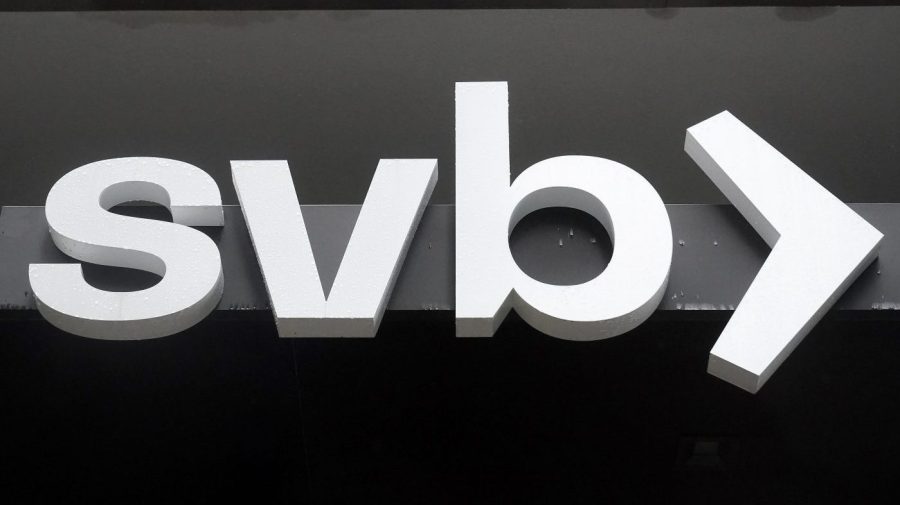Lawmakers slam regulators following Silicon Valley Bank failure

Lawmakers raked banking regulators at the Federal Reserve, Treasury Department and Federal Deposit Insurance Corporation (FDIC) over the coals during a hearing of the Senate Banking Committee on Tuesday after the agencies failed to act on signs that Silicon Valley Bank (SVB) was in trouble, mobilizing instead to bail out depositors after it had collapsed.
While Democrats argued for stronger legislation on the banking industry and Republicans focused on lapses in regulatory practice, it was the regulators themselves who bore the brunt of the criticism from both parties.
“For over a year, regulators were saying to this bank, ‘straighten up and fly right,’ and they never did a damn thing about it,” Sen. Jon Tester (D-Mont.) said. “You did not have to be an accountant to figure out what the hell was going on here.”
“If you find as part of your review that certain individuals were clearly negligent in the performance of their duties, are you willing to recommend they be fired?” Sen. Steve Daines (R-Mont.) asked Fed Vice Chairman for Supervision Michael Barr, who is currently leading an investigation into SVB’s collapse and why regulators weren’t able to stop it.
No sign of failed bank leaders

The CEO of the failed SVB, Greg Becker, who was also a board member of the San Francisco Federal Reserve, did not appear before the Senate Banking Committee on Tuesday despite widespread agreement that the bank failed due to incompetent management.
The backstory: FDIC spent $20 billion to handle Silicon Valley Bank collapse
The issue of why bank bosses should be allowed to serve on the boards of regulatory bodies that have authority over them went largely unaddressed, although there is newly proposed legislation to prohibit the practice.
The blame game over the collapse of SVB and the bailout of its depositors — well above the standard $250,000 FDIC insurance limit — is playing out over the expanse of the U.S. financial system, with lawmakers blaming regulators, regulators blaming bankers and bankers blaming the herd mentality of bank runs supercharged by social media.
What will Congress do?

The legislative response to the latest bank collapses is still evolving, but Democrats led by Sen. Elizabeth Warren (Mass.) have been arguing for the restitution of the Dodd-Frank Act, which was enacted in the aftermath of the 2008 global financial crisis but scaled back during the Trump administration in 2018.
“Chair Gruenberg, will you commit to using your authority to undo the rollbacks that your predecessor initiated and to strengthen the rules and supervision for banks with greater than $100 billion in assets?” Sen. Warren asked FDIC Chairman Martin Gruenberg on Tuesday, referring to more recent banking regulations that were loosened in regard to midsized banks.
“I certainly think it’s appropriate for us to go back and review those actions in light of the recent episode,” Gruenberg responded.
Warren has proposed legislation that would subject banks of the size of SVB to stricter regulations in the form of greater capital and liquidity requirements.
The progressive firebrand: Warren takes center stage in banking fight after SVB collapse
“In 2018, I rang the alarm bell about what would happen if Congress rolled back critical Dodd-Frank protections: banks would load up on risk to boost their profits and collapse, threatening our entire economy – and that is precisely what happened,” Warren said in a statement earlier this month.
The question of whether all U.S. bank deposits are now implicitly backstopped by the FDIC — and by extension U.S. taxpayers — in the same way they were for SVB and Signature Bank was also raised during the hearing.
“The decision to cover uninsured depositors at these two institutions was a highly consequential one,” Gruenberg said. “By May 1, we’ll deliver a report including policy considerations to take that into account.”
“When we were looking at the systemic risk determination with respect to these institutions, we were thinking about the risks to the broader financial system, not the particular depositors,” Barr said.
The proposals: Banking legislation piles up as wobbly market evolves
Republican Sen. J.D. Vance (Ohio), himself a former venture capitalist, argued for expanding the FDIC’s implied insurance policy — which he said should be considered a bailout — across the banking industry.
“What I’d like you guys to consider doing is extending the same implied offer that you gave to the Silicon Valley Bank uninsured depositors, to do it a little bit further down the banking ladder so that everybody benefits from the rule that you guys have created for Silicon Valley Bank,” he said.
Public sector bank bailouts for badly managed banks are very unpopular among Americans.
A recent poll by Ipsos found that “84 percent of Americans agree — 56 percent agree strongly — that taxpayers should not have to foot the bill for irresponsible bank management, including 85 percent of Democrats and 86 percent of Republicans.”
Copyright 2023 Nexstar Media Inc. All rights reserved. This material may not be published, broadcast, rewritten, or redistributed. Regular the hill posts







